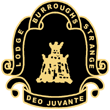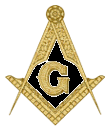
Lodge Burroughs Strange No. 87
Vijayawada, India


Article on Freemasonry - 36
The Nature and Purpose of Freemasonry
by R.W.Bro. M.N. Mahadevan, O.S.M., P.Dy.G.M., P.Dy.R.G.M.,President of the Board of General Purpose
Golden Jubilee Oration at the Madras Masters Lodge
This unique Lodge was consecrated on 24th March 1923 by R. W. Bro. A. Y. B. Campbell. There were 88 petitioners, 40 of whom are Indians. I refer to this as a unique Lodge because of the concept of having a Lodge for Installed Masters only. The composition of membership must strike one as a guarantee for efficiency and excellence. It is also unique that there has never been any initiation or regular for Masonic advancement. It is again unique because it undertook the colossal task of editing the Madras Masonic Journal which, over a period of years, has served Masons all over India and with special reference to the Southern Region. Very eminent luminaries of Masonry have been members of this Lodge and have given of their best for the successful working of this Lodge. In a way, it is considered as a group of installed Masters who are not only vigilant about improving the standard of working in other daughter Lodges, but are also inclined to do some group study in enriching the enlightening the minds of those who do not ordinary give any special though to the deep significance of Masonic work, Eminent Masons like R. W. Bro. Campbell, V. W. Bro. Sivagnanam Mudaliar, R. W. Bro. T. V. Muthukrishna Iyer and now amongst the surviving Brethren R. W. Bro. Jambu Ramaswami Iyer, who held the office of the Secretary for 17 years, all have contributed towards its present high position in the masonic family. R. W. Bro. R. Krishnasamy’s efforts in the furtherance of the objectives of this Lodge and in editing the Madras Masonic Journal with great perspective and accuracy are things about which we are justly proud. So, at this celebration of the Golden Jubilee, we have every reason to feel proud of those who are responsible for the consecration of this Lodge for its sustenance and progress and for its great contribution to masonic knowledge. The best way to celebrate such an occasion is to rededicate ourselves to bring it to greater form and usefulness so that it may leave an indelible imprint and act as a catalyst organisation to the other daughter Lodges in India. So, let us so rededicate ourselves with humility and prayer to make it the fountain of research and disseminate in simple language masonic knowledge to the large number of Masons scattered all over the country.
My special purpose this evening is to consider some ethical and psychological aspects of Freemasonry. While we cherish the definition of Freemasonry as a peculiar system of morality, veiled allegory and illustrated by symbols, to me it seems that this system of morality is not an entity which will be a special quality of Freemasonry alone. Freemasonry has never propounded its own ethical code, it has never claimed that their Lodges are schools of ethical culture and seldom gives any lectures on ethical matters. Conversely, it demands that righteousness shall be the attribute of its initiates. It specifically requires that the tongue of good report should be heard before a man joins its ranks and once he has joined it, requires him to uphold the attributes to be expected in a man of honour. It exhorts a man to do his duty to God, to his neighbour and to himself. But, throughout, it demands no more than that allegiance to the attributes common to all men. Throughout, in short, it propounds no masonic code of ethics nor does it propound its own 'system of morality.' While we may not refute that there is a speciality of masonic ethics, I do nevertheless think that the science of ethics has a peculiar and important in Freemasonry. It is true to claim that when in any field of worthwhile endeavour men associate closely, their needs require that certain attributes of character should be brought to the forefront. For instance, if men meet on the football field, the attributes of unselfishness and sportsmanship, must needs be emphasized.
I claim this to be the true spirit of Freemasonry. The attributes of character are normal and not peculiar to the Craft, but by its own system, it brings to the forefront and lays stress on certain of these attributes. While therefore Freemasonry is not a system of morality taking morality in its ordinary sense, it is a system which has its own way of stressing morality and I suggest that this is the true meaning of the ancient definition.
I turn next to a consideration of the manner in which Freemasonry lays stress and emphasis on these things. Certainly, it is not done by word. Nowhere, for instance, a candidate is asked if he believe sin righteousness. Rather, he is asked what he does about it. No Lodge instructs its members in ethics or expects them to be able to defend ethical standards but insists in most emphatic manner that when ethical problems confront them, they will face it with action. For instance, a Freemason is not interested in theoretical aspects of quarreling but he not given theoretical instructions on his duty to God. He is simply told emphatically what he is expected to do about it.
It will be recollected that I have referred to ethics as a science, a science by which man determines his rights, his duties and his responsibilities. Although its entry into the realm of exactitude is more recent, psychology is now accepted as a science, the science of behaviour. It derives its claim to be a science from its close study of man. It has also been defined as the science of mental processes or of the activity of the mind. The mind as a whole may be said to consist of the conscious, the subconscious and the unconscious and although it is difficult always trace the conscious thought from its original sources there is no doubt that it reaches the conscious part of the mind from recesses of the subconscious or unconscious Vividness of impression or the impact of constant repetition would seem to play a vital role in triggering off this seemingly inexplicable movement of thought into the conscious mind.
I have already referred to the emphasis to be placed on the attributes of character. Freemasons all know however that this emphasis is brought about largely by the process of repetition and dramatic presentation. I need refer only to the repetitive process of ritual and do the compelling drama of obligations to stress the psychological significance of these methods, surely designed to leaves such an impression on the subconscious and even on the unconscious mind so that the attributes of character therein contained, will when seemingly forgotten drift into the conscious realm. I suggest further that the constant and vivid impression of these worth-while attributes on the hidden recesses of the mind must have an uplifting effect on the thoughts which arise so unexpectedly and sometimes so helpfully in the conscious mind.
If it can be accepted that Freemasonry is a fraternity set up for the purpose of the quest of the truth, then I submit that in its own peculiar way and using its own peculiar system, it makes its appeal as wide and as universal as possible. Perhaps even then not all its members will be caught up in that appeal but I wonder whether some in its numbers should ever have been included.
In proceeding to consider this aspect of my thesis, I have tried to keep two ideas in mind. Freemasonry must ever remain constant to its principles - truth - despite it members. It must hold or try to hold its members as through them only can it hope to achieve its grand principles.
What mental process therefore does it use to hold its members ? The personnel of Freemasonry may be roughly divided into three groups. The first group is the largest ; it consists of men who find an appeal in the teaching of the Craft - and that all are equal and meet on the same social level. A man who in the world at large is not possessed of great attainments and is destined to lead an ordinary or perhaps dull existence with no hope of honour and distinction, can as Freemason and often does attain a high position in the Order which is a world in itself.
To others, there is a lure of distinctive regalia of great or little importance according to the individual himself.
Within the same group are others who find satisfaction in the Craft's moral attributes of character ; they are able to subscribe to the moral tenets of honour, virtue, prudence, temperance, justice, benevolence and charity without meditating on the spiritual relationship between them and God. All worthy enough as far as it goes and demonstrative of the psychological wisdom of our Craft.
Again, within the group are many for whom the aesthetics have an appeal, beauty, serenity of the Temple of the Lodge Room, the peace and orderliness of the proceedings, unquestioned authority and freedom from the bickering and arrogance of domestic or social life, all have a vast appeal to different men in this group and so contribute to their constancy.
Finally, there are men in this group who are kept from forsaking their Masonry by the convivial element - the pleasures of the refractory.
I confidently suggest that an honest appraisal will reveal that these facets of Freemasonry quite deliberately designed, hold vast majority of our Brethren within and Craft's ranks and thereby make its aim possible.
The second group is much smaller. It consists of men who would either not be Freemasons or not remain Freemasons without some intellectual incentives. That there are not men of high intellectual attainment in the first group. But only that this particular group seeks some intellectual exercise and Freemasonry provides just that by leading them to devote themselves to antiquarian research into the origin, history and development of Freemasonry ; a study of its signs and symbols, the collection and interpretation of old manuscripts, aprons and other emblems and physical attributes of the Craft connected with its past. The fact importance to these men, is, I suggest another manifestation of these mental processes by which it plans to lead men to its grand principles.
My third group comprises all too few. It is made up of those of an aesthetic temperament who devote serious masonic labour to seeking ' for that which was lost.' In this connection, Brother W. L. Wilmshurst says 'Masonry describes it variously as a vital and immortal principle, Adoniram, as the Blazing Star of Glory at our Centre, as a light of a Master Mason which never goes out even when all other lights or faculties fail, because, it is eternal or immortal whilst our faculties or temples are perishable.'
I have particularly chosen to speak on the above subject with the hope that in the process of our rededication for improving the good and effective work done by the Madras masters Lodge, we might consider the psychological and ethical aspects of masonry in the broader perspective and that the Madras Masonic Journal will publish some of these studies in simple language which would encourage Masons all over our country to imbibe the high ethical principles and tenets of our institution. Let us therefore pray to the Great Architect of the Universe to give strength and courage to those who are devoting their time and substance for the furtherance of his institution so that we can put more Masonry into Masons and also by radiation, more men into Masonry.
